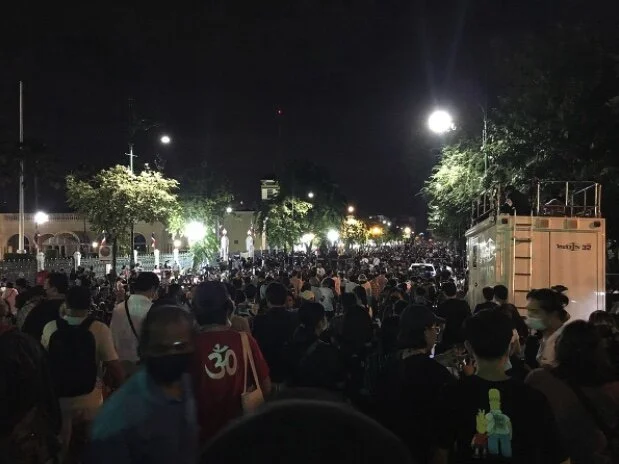Thai Prime Minister Lifts Emergency Decree Amid Anti-Government Protests
Tens of thousands of people took to the streets in Bangkok to join anti-government protests.
Thai Prime Minister Prayuth Chan-ocha revoked an emergency decree that had garnered strong opposition amid anti-government protests on October 22. The emergency decree, issued on October 15, had banned gatherings of more than five people and the publication of news that could harm national security. Despite the government’s concession, the protests still rage, and participants are demanding that Prayuth resign within three days.
Prayuth, a leader of a coup in 2014, had presided over a junta government until he won the election last year. Pro-democratic activists have claimed that the electoral process favored Prayuth.
Ever since the protests began in July, protesters have demanded the resignation of Prayuth, a rewritten constitution, and an end to the intimidation of government critics. Some protesters even broke a longstanding taboo by demanding a reform of the country’s monarchy. The government issued the controversial emergency decree as the movement gained broader support.
The emergency decree intensified the tension between protesters and the police, as tens of thousands of protesters defied the ban and took to the streets, chanting “Prayuth get out.” In the past week following the decree, police have arrested more than 50 protesters. Police also deployed water cannons to clear protesters in Bangkok’s central shopping district. To discourage people from joining the protest, Thai authorities shut down public transportation in Bangkok. However, this strategy backfired when leaders of the protesters localized the protests across the country.
In response to the escalating protests, Prayuth withdrew the emergency decree on October 22, following a televised speech the day before where he expressed his intention to do so. “I will make the first move to de-escalate this situation. I am currently preparing to lift the state of severe emergency in Bangkok and will do so promptly if there are no violent incidents,” he remarked in the speech. He also asked protesters to let members of the parliament solve the problems.
In spite of Prayuth’s concession speech, tens of thousands of protesters marched to his office at Government House later that day and set a three-day deadline for him to resign. “If within three days he doesn’t resign, he will face the people again,” Patsaravalee Tanakitvibulpon, one of the protest leaders, told the crowd. She was subsequently arrested, and she was released the next day.
Another leader of the protests, Sirawith Seritiwat, expressed, “He’s still seeking to stay in power while ignoring all the people’s demands. The emergency decree shouldn’t have been issued in the first place.”
Brad Adams, an Asia director at Human Rights Watch, encouraged the United Nations and concerned governments to demand an immediate end to the political repression by the Prayuth administration.

